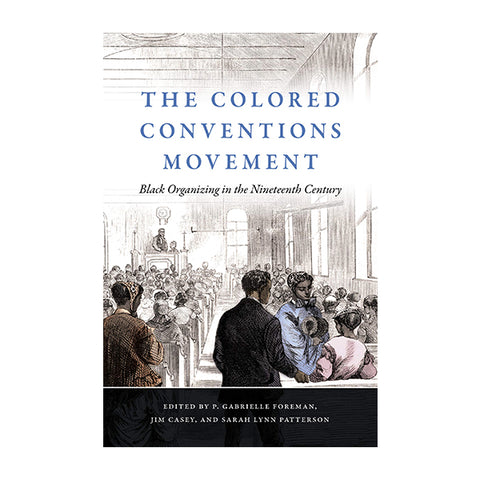This volume of essays is the first to focus on the Colored Conventions movement, the nineteenth century's longest campaign for Black civil rights. Well before the founding of the NAACP and other twentieth-century pillars of the civil rights movement, tens of thousands of Black leaders organized state and national conventions across North America. Over seven decades, they advocated for social justice and against slavery, protesting state-sanctioned and mob violence while demanding voting, legal, labor, and educational rights. While Black-led activism in this era is often overshadowed by the attention paid to the abolition movement, this collection centers Black activist networks, influence, and institution building. Collectively, these essays highlight the vital role of the Colored Conventions in the lives of thousands of early organizers, including many of the most famous writers, ministers, politicians, and entrepreneurs in the long history of Black activism.
Contributors: Erica L. Ball, Kabria Baumgartner, Daina Ramey Berry, Joan L. Bryant, Jim Casey, Benjamin Fagan, P. Gabrielle Foreman, Eric Gardner, Andre E. Johnson, Cheryl Janifer LaRoche, Sarah Lynn Patterson, Carla L. Peterson, Jean Pfaelzer, Selena R. Sanderfer, Derrick R. Spires, Jermaine Thibodeaux, Psyche Williams-Forson, and Jewon Woo.
From February 11, 2022, Our Composite Nation: Frederick Douglass' America shines a light on the late 1860s—at a moment of great hope for the promise of equality under the law. The famed orator and once-enslaved abolitionist Frederick Douglass took his “Our Composite Nation” speech on the road to argue for a plural American democracy. The mission of this new nation, he declared, was to provide the world “a composite, perfect illustration of the unity of the human family.” For what was the U.S., he said, but “the most conspicuous example of composite nationality in the world?” This special installation features artifacts, images, and a theatrical design that bring Douglass’ compelling speech to life and explores his vision of freedom, citizenship, and equal rights that remains urgently relevant today, as a hopeful plea for America to live up to its founding ideals.


